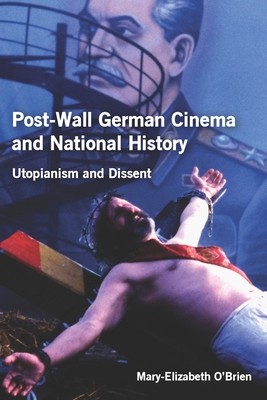
- We will send in 10–14 business days.
- Author: Mary-Elizabeth O'Brien
- Publisher: Camden House (NY)
- ISBN-10: 1571135960
- ISBN-13: 9781571135964
- Format: 15.2 x 22.9 x 2 cm, minkšti viršeliai
- Language: English
- SAVE -10% with code: EXTRA
Post-Wall German Cinema and National History (e-book) (used book) | bookbook.eu
Reviews
Description
German history films that focus on utopianism and political dissent and their effect on German identity since 1989.
Since unification, a radical shift has taken place in Germans' view of their country's immediate past, with 1989 replacing 1945 as the primary caesura. The cold-war division, the failed socialist state, the '68 student movement, and the Red Army Faction -- historical flashpoints involving political oppression, civil disobedience, and the longing for utopian solutions to social injustice -- have come to be seen as decisive moments in a collective history that unites East and West even as it divides them. Telling stories about a shared past, establishing foundational myths, and finding commonalities of experience are pivotal steps in the construction of national identity. Such nation-building is always incomplete, but the cinema provides an important forum in which notions of German history and national identity can be consumed, negotiated, and contested. This book looks at history films made since 1989, exploring how utopianism and political dissent have shaped German identity. It studies the genre - including popular successes, critical successes, and perceived failures - as a set of texts and a discursive network, gauging which conventions and storylines are resilient. At issue is the overriding question: to what extent do these films contribute to a narrative that legitimizes the German nation-state? Mary-Elizabeth O'Brien is Professor of Germanand The Courtney and Steven Ross Chair in Interdisciplinary Studies at Skidmore College.EXTRA 10 % discount with code: EXTRA
The promotion ends in 21d.04:35:34
The discount code is valid when purchasing from 10 €. Discounts do not stack.
- Author: Mary-Elizabeth O'Brien
- Publisher: Camden House (NY)
- ISBN-10: 1571135960
- ISBN-13: 9781571135964
- Format: 15.2 x 22.9 x 2 cm, minkšti viršeliai
- Language: English English
German history films that focus on utopianism and political dissent and their effect on German identity since 1989.
Since unification, a radical shift has taken place in Germans' view of their country's immediate past, with 1989 replacing 1945 as the primary caesura. The cold-war division, the failed socialist state, the '68 student movement, and the Red Army Faction -- historical flashpoints involving political oppression, civil disobedience, and the longing for utopian solutions to social injustice -- have come to be seen as decisive moments in a collective history that unites East and West even as it divides them. Telling stories about a shared past, establishing foundational myths, and finding commonalities of experience are pivotal steps in the construction of national identity. Such nation-building is always incomplete, but the cinema provides an important forum in which notions of German history and national identity can be consumed, negotiated, and contested. This book looks at history films made since 1989, exploring how utopianism and political dissent have shaped German identity. It studies the genre - including popular successes, critical successes, and perceived failures - as a set of texts and a discursive network, gauging which conventions and storylines are resilient. At issue is the overriding question: to what extent do these films contribute to a narrative that legitimizes the German nation-state? Mary-Elizabeth O'Brien is Professor of Germanand The Courtney and Steven Ross Chair in Interdisciplinary Studies at Skidmore College.

Reviews